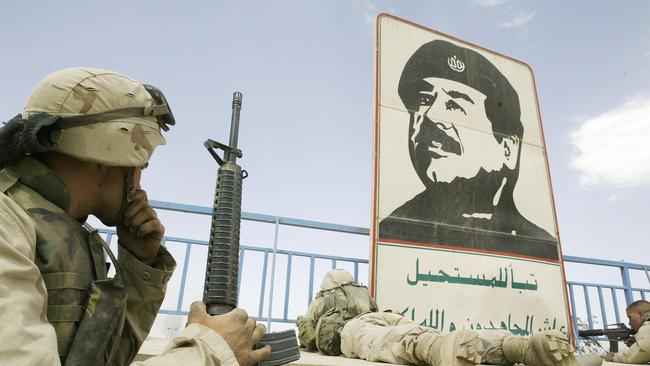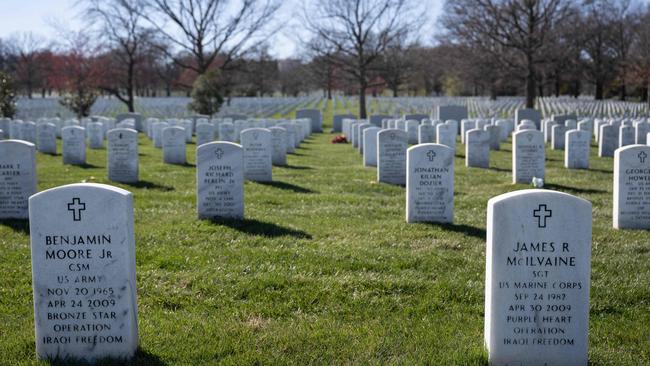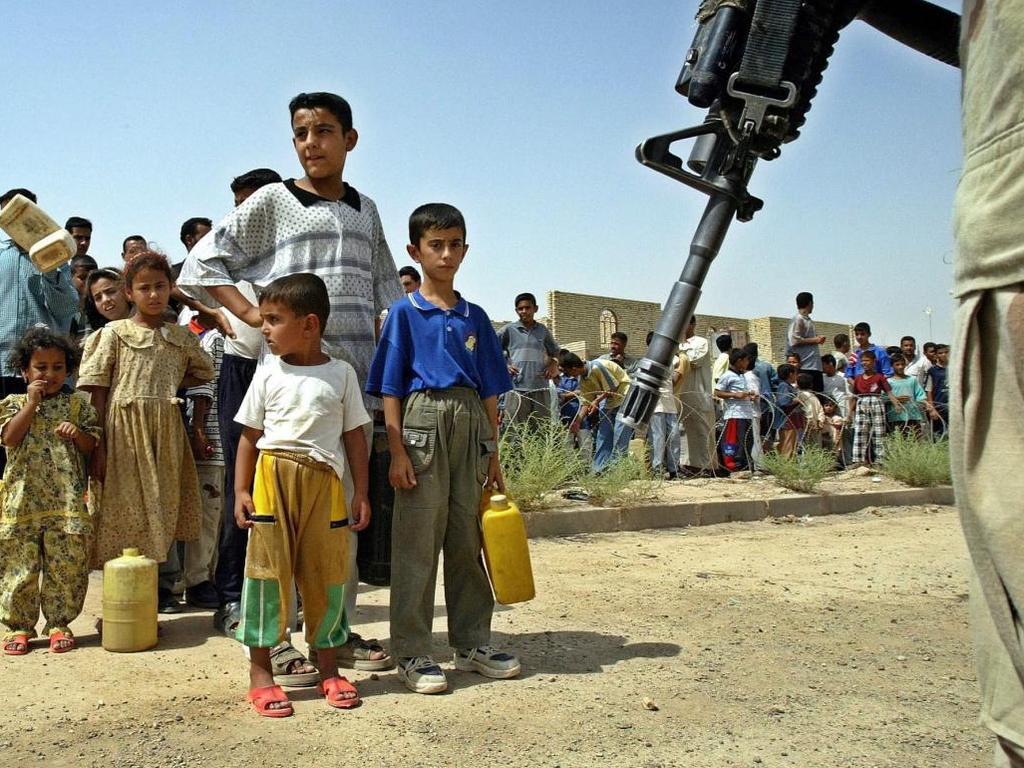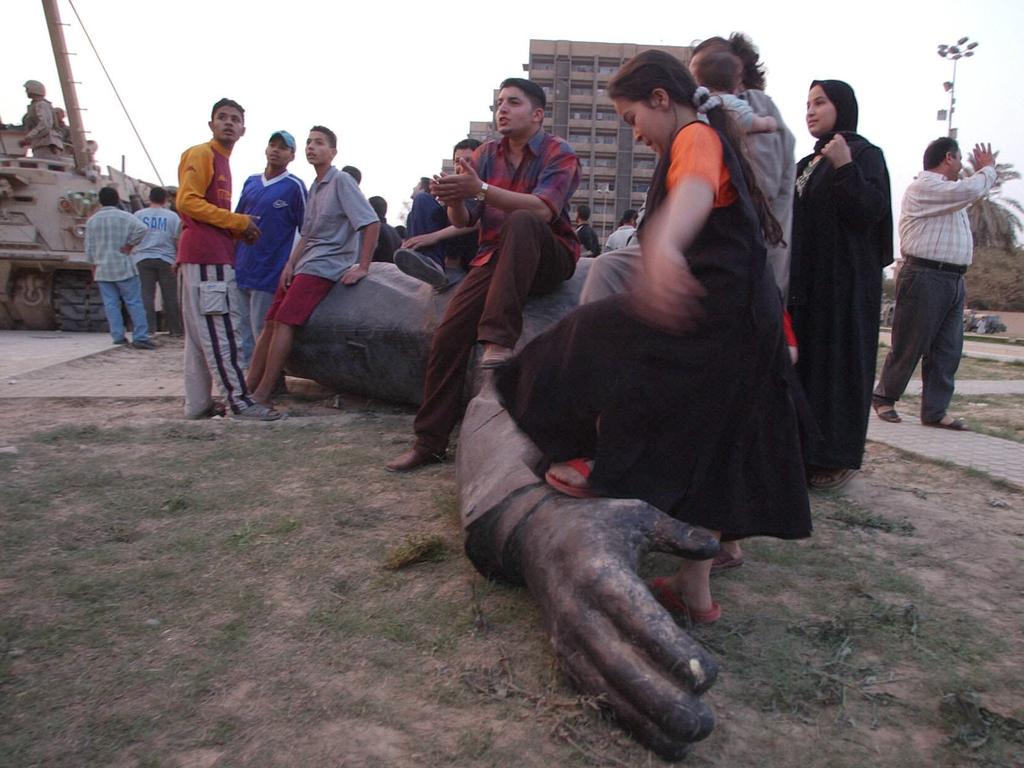
The case for the war two decades in the rearview mirror goes something like this:
It was messy and poorly executed, true, but Iraq is better off now than it was then, and more important, it no longer poses a threat to the US, its allies and its interests. Tragic as American and allied military deaths and injuries are, this was achieved with the loss of a fraction of the casualties in Korea or Vietnam, let alone the world wars. The fiscal cost was relatively small too, perhaps $US100bn a year for eight years, well below 1 per cent of US gross domestic product.
What’s more, the defenders say, we tend to see events like these through a static rather than a dynamic view of history. Even if the US hadn’t invaded Iraq in 2003, it’s likely that over the next 10 years terrible violence would have unfolded there. Sooner or later the suppression of the Shia two-thirds of the population by the Sunni Arab quarter would have ended in mass bloodshed.

Respectfully, I dissent. For one thing, to defend the war on the grounds that Iraq is no threat is premised on an obvious fallacy – that invasion was necessary to ensure this outcome. We know that this wasn’t true. Saddam Hussein had been in his UN inspections cage for more than a decade already in 2003. After the 9/11 attacks, the scrutiny and containment was only getting tighter. Do we really think, given what he was witnessing in Afghanistan, that he would be insane enough to attack the US or its allies?
We know for sure that the argument that the inspections regime was dangerously insufficient didn’t hold up because, to bolster it, advocates of war had to adduce lurid claims about weapons of mass destruction.
In his brilliantly forensic 2020 analysis, To Start a War: How the Bush Administration Took America into Iraq, Robert Draper methodically documents the campaign of deception – including self-deception – that officials deployed, pointing frantically at every molehill of intelligence that supported their case and dismissing the mountains that cast doubt on it.
It is astonishingly blithe to say of the hundreds of thousands of Iraqis who died in the internecine strife that took place under the supervision of the US that they might have died in any case. What kind of vacuum of conscience does it take to balance a known historical tragedy against a hypothetical one and conclude that they have equal moral weight?
So the case that the war was justified fails on its own merits. But this doesn’t even begin to weigh the real costs, including the damage to America’s reputation and its strategic strength.
The promulgation of the WMD fictions, the Abu Ghraib horrors, the catastrophically inept initial occupation and administration – all undid in a matter of months the post-Cold War authority and heft the US had earned over decades. Almost every calamity that followed – Iran’s ascent, the rise of ISIS, Barack Obama’s disastrous failure in Syria – can be traced back more or less directly to the war.
If we are going to play the alternative-history game, think how the region might have been different if the US had taken advantage of the extraordinary solidarity that obtained after 9/11 to advance its long-term security rather than, through hubris and ineptitude, surrender much of the territory to Islamo-fascists, theocratic mullahs and the butcher in the Kremlin.
Much worse is the damage the war did to the fabric of American democracy. The American people were terrified by their government into war, with the bogus menace of nuclear weapons wielded by a man with bogus connections to the 9/11 terrorists. They were promised a war that would be a cakewalk followed by an occupation in which their sons and daughters would be greeted with sweets and flowers.
This cloud castle of fictions did incalculable damage to the bonds of trust between Americans and their leaders.
There is a direct line between the deceptions worked on the American people about the war and the angry popular disillusionment with the performance of US political leaders that led the rise of Donald Trump and for that matter the deep reluctance many Americans feel about support for Ukraine.
Worse still is that there has been no accountability for the architects of the debacle. The political leaders have mostly moved on, but with Olympic-level chutzpah, many of the so-called intellectuals who advocated it are still out there, lecturing the American people that it’s treasonous to oppose immersing the US into other conflicts.
Is there a word for the complete lack of self-awareness you need to possess to denounce Trump and the new conservative populism even as you are principally responsible for the disasters that ignited it?
A better course for those of us who supported that terrible misadventure is to admit our shameful error or, failing that, take an oath of respectful silence.
The Wall Street Journal






Some of those who supported the invasion of Iraq 20 years ago this week are making the best defence they can of what the rest of us long ago concluded was probably the most flawed decision in US foreign policy since the founding of the republic.